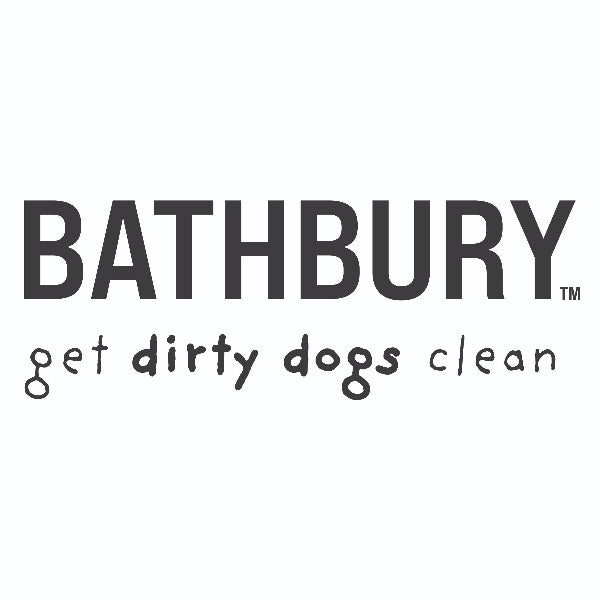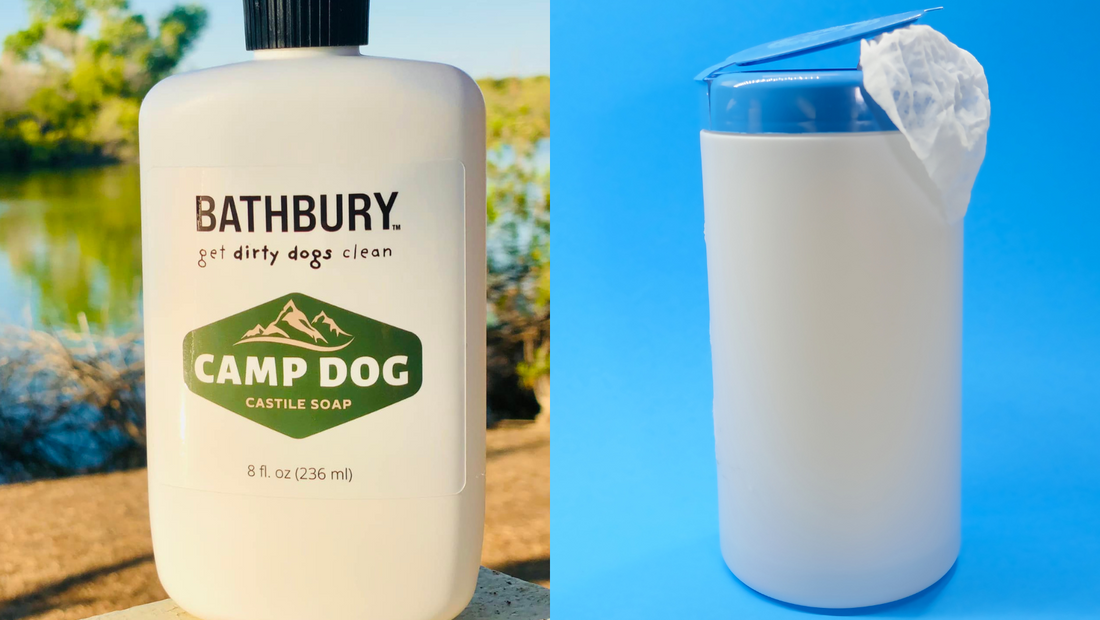When it comes to keeping your dog clean during outdoor adventures, you're often faced with a choice between using Camp Dog Castile Soap or packaged wipes. While both options have their merits, they cater to different needs and priorities. In this article, we’ll break down the differences between the two across several key areas to help you decide which option aligns best with your values and lifestyle.
1. Cost
Camp Dog Castile Soap: The upfront cost of Camp Dog Castile Soap may be higher than that of a single pack of wipes, but its long-term value becomes apparent quickly. A single bottle can last for multiple uses, especially when diluted for different cleaning purposes. Whether you're washing your dog after a muddy hike or just doing a quick paw clean, a small amount goes a long way.
Packaged Wipes: Wipes are generally cheaper initially, but the cost adds up over time, especially if you're using them frequently. A single package might not last long if you’re on a multi-day camping trip, leading to the need for multiple purchases.
2. Value
Camp Dog Castile Soap: The value of Castile soap lies in its versatility. It’s not just a dog cleaner; it can also be used for washing your gear, your own hands, and even as a makeshift laundry detergent. It’s a multi-use product that delivers consistent results across the board.
Packaged Wipes: Wipes offer convenience, but their use is generally limited to quick, surface-level cleaning. Once used, they’re done, and their utility doesn’t extend beyond a single wipe.
3. Ease of Use
Camp Dog Castile Soap: While using soap requires water and a bit more effort, it’s an easy process, especially if you’re camping near a water source. The soap can be pre-diluted into a spray bottle for easy application on the go, making it more versatile than you might initially think.
Packaged Wipes: Wipes win in this category for sheer convenience. They’re pre-moistened, individually packed, and ready to use at a moment’s notice. There’s no need for water, making them ideal for quick cleanups during a hike or when you're far from a water source.
4. Effectiveness
Camp Dog Castile Soap: Camp Dog Castile Soap is highly effective for deep cleaning, particularly after a long day of outdoor adventures. It’s strong enough to remove dirt, grime, and odors but gentle enough to be used regularly without irritating your dog’s skin.
Packaged Wipes: Wipes are effective for light, surface cleaning but may struggle with more stubborn dirt or strong odors. They’re great for a quick touch-up but might not suffice when your dog has really embraced the wilderness.
5. Sustainability
Camp Dog Castile Soap: Made from clean ingredients, Camp Dog Castile Soap is a more sustainable option. It requires minimal packaging, and a single bottle can replace dozens of packages of wipes. Plus, the soap itself is biodegradable, ensuring it’s kind to the environment.
Packaged Wipes: Wipes generally come in plastic packaging, and while some brands offer biodegradable options, the majority are made from materials that take a long time to break down. They also contribute to landfill waste, particularly because they’re single-use.
6. Environmental Impact
Camp Dog Castile Soap: The environmental footprint of Camp Dog Castile Soap is relatively low. It’s made with clean ingredients that are safe for both your dog and the environment, and it aligns well with Leave No Trace principles, especially when used with purified water.
Packaged Wipes: The production and disposal of wipes contribute to environmental degradation. Even biodegradable wipes require proper disposal methods to ensure they break down correctly, and not all wipes are as eco-friendly as they claim to be.
7. Leave No Trace
Camp Dog Castile Soap: When used correctly, Camp Dog Castile Soap adheres closely to Leave No Trace principles. It can be used sparingly, and its biodegradable nature ensures that it doesn’t harm the local ecosystem. Additionally, using soap with purified water further minimizes environmental impact.
Packaged Wipes: While wipes are convenient, they often conflict with Leave No Trace principles due to their single-use nature and potential to leave behind waste if not disposed of properly.
8. Clean Ingredients Score
Camp Dog Castile Soap: This soap boasts a high clean ingredients score, focusing on simple, non-toxic components that are safe for both dogs and the environment. There are no harsh chemicals, synthetic fragrances, or preservatives, making it an excellent choice for health-conscious dog owners.
Packaged Wipes: Wipes can vary widely in their ingredients. Some may contain preservatives, fragrances, or other chemicals that aren’t ideal for dogs with sensitive skin. Even natural wipes may require some form of preservation, which can lower their clean ingredients score.
9. Packaging
Camp Dog Castile Soap: The packaging for Castile soap is minimal and usually recyclable. One bottle can last a long time, reducing the need for frequent purchases and excess packaging.
Packaged Wipes: Wipes are typically packaged in plastic, which is not always recyclable. Each package of wipes represents a new set of packaging, contributing to a larger environmental footprint.
10. Shelf Life and Storage
Camp Dog Castile Soap: Castile soap has a long shelf life and is easy to store. It doesn’t require special conditions and remains effective over time, making it a reliable staple in your camping gear.
Packaged Wipes: Wipes have a shorter shelf life once opened, as they can dry out if not sealed properly. They also require careful storage to maintain their moisture and effectiveness.
11. Allergy and Sensitivity Considerations
Camp Dog Castile Soap: With its clean, simple ingredients, Camp Dog Castile Soap is less likely to cause allergies or skin sensitivities. It’s unscented and free from harsh chemicals, making it suitable for dogs with delicate skin.
Packaged Wipes: Some wipes may contain fragrances or preservatives that could irritate sensitive skin. Even wipes labeled as “natural” may include ingredients that aren’t ideal for all dogs.
12. Cultural and Ethical Considerations
Camp Dog Castile Soap: For those who value traditional soap-making methods and ethical, sustainable practices, Camp Dog Castile Soap stands out as a product that aligns with these values. It’s a choice that reflects a commitment to high-quality, responsible pet care.
Packaged Wipes: While wipes are convenient, they may not align with the values of those who prioritize sustainability and reducing single-use products. The ethical implications of contributing to more waste might be a consideration for environmentally conscious consumers.
DIY Wipes: A Sustainable Solution
For those who love the convenience of wipes but want a more sustainable approach, Camp Dog Castile Soap makes it easy to create your own DIY wipes. Simply dilute the soap with water and soak reusable cloths or even paper towels in the solution. You’ll have a ready-to-use, eco-friendly wipe that’s gentle on your dog’s skin and reusable, cutting down on waste and single-use packaging. For more detailed instructions on how to make your own DIY wipes, check out the guide on Bathbury’s website here.
Conclusion
Both Camp Dog Castile Soap and packaged wipes have their places in a dog owner's toolkit, but they serve different purposes. If you’re looking for a sustainable, effective, and multi-use product that aligns with Leave No Trace principles, Camp Dog Castile Soap is the clear winner. It offers long-term value, is made from clean ingredients, and is versatile enough to handle various cleaning needs.
On the other hand, if convenience is your top priority and you need a quick, on-the-go solution, packaged wipes might be the way to go—just keep in mind their environmental impact and potential limitations in cleaning power.
Ultimately, the choice comes down to your priorities: Do you value sustainability, versatility, and long-term effectiveness, or is immediate convenience more important? Whichever you choose, understanding the differences can help you make the best decision for you and your dog’s outdoor adventures.

